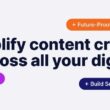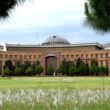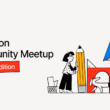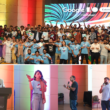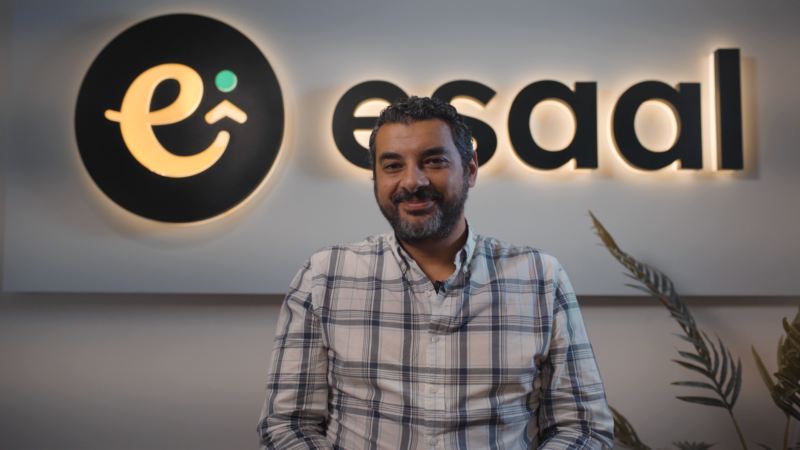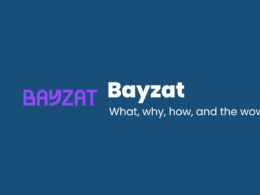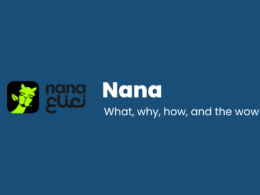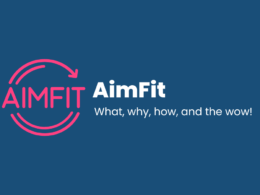The digitisation of manual processes has been a significant trend among startups in the previous few years. Especially during COVID, many solutions have been developed to connect individual consultants or businesses to customers online to get things done from the comfort of their homes.
Healthcare has seen a similar upsurge in health-tech startups developing platforms to provide online medical consultations as it became infeasible for people to visit hospitals. Esaal, based in Egypt, is also among these startups with over 300 medical professionals in the fields of medicine, psychology, and nutrition.
Esaal recently raised $1.7M in a seed round bringing its total funding to $3M since its inception in 2018. We Talk Startups sat down with Esaal’s CEO, Fadi Doss, to discuss their plans for the funding and his personal experience with building this platform.
We Talk Startups [WTS]: What is your story and what led to you building a platform like Esaal?
Fadi Doss [FD]: My name is Fadi and my background is in Communication Engineering. I’ve been working for more than 20 years on the valuable services provided to different people in different countries. I worked a lot with different providers providing different types of services in the past years, then, for sure, when internet penetration and smartphone penetration increased in the market, the type of services changed a lot. Now the focus mostly is on the infotainment and entertainment side.
We had a belief that we need to offer something really valuable to the users that can change their lives and enable people to have a better lifestyle. So we started building this platform whose basic idea is to have a reliable channel that can directly connect users with real medical experts in different domains where they can get trustable and personalized consultations based on a solid background. So if you have a problem, a question or an issue in your life, that you need to get a consultation for, instead of going to look on the internet or on social media networks where you might get the wrong advice, you can avail this platform to get personalized and trustable advice from a real expert. So that’s the story of the platform, and how we started.
We try to engage a large number of people and provide different ways of communication, like texting, voice calls, audio and video sessions so you can choose whatever is more convenient to you. Some people may prefer to text the experts or say mothers might like to have a one-to-one video session with them – we enable all of that. We are incorporating more and more services day after day and that’s part of our roadmap to make our services available for everyone
WTS: What was the reason behind the name Esaal for your platform?
FD: Esaal means ask in Arabic. We wanted to choose an easy name and one which just made sense. So we named it Esaal as in ask the expert, don’t ask anyone else. Our slogan in Arabic is اسأل خبير تفرق كتير which means when you ask an expert, it makes a lot of difference.
WTS: Congratulations on your recent seed round! What are your plans for the funding you have raised?
FD: Actually, this was the last tranche of the seed round. Esaal actually started in mid-2018 so we had a pre-seed and seed round at that time. Now we have completed the seed round by receiving this last tranche of the amount. Currently, we are even preparing for a Series A round, to be able to focus on four main domains.
One of them is product development, where we want to enable more capabilities, both on the features side and on the technology side. We want to incorporate AI techniques that can facilitate the users when it comes to choosing the right experts and direct them in their choice using technology.
We need to work on the human capital as well, as we’re still very limited when it comes to human resources. So we are planning to hire more people.
We also need to work on the brand. We serve something that is very crucial and important. So we need people to know and trust the brand as well.
And finally, on the business development side, where we are looking to enhance the B2B2C component.
WTS: We have previously written about the right time to raise funds. What would be your advice regarding that?
FD: You surely need investment before you launch so you can manage to start the right way. The launch of any startup is something very important as it is the proof of concept that your idea is viable. Without the pre-seed, it’s a bit difficult to launch even on a small scale. Then you always need to be very cautious as too much delay in any funding round can affect your growth and your speed. That’s why we’re starting preparation for our Series A immediately to be able to keep the momentum that we have and move faster on the different plans we have.
You don’t need to reach a level where you believe that you’re lacking resources and then raise funds. Raising funds is not just a day’s work, it takes time. So you need to have enough time to prepare and be able to continue at the same speed while the process goes on.
WTS: What was the position that you first hired for at Esaal and what would you advise startup founders about building their dream team?
FD: When we started Esaal, we were just three people; myself, and my two co-founders – the COO and the CTO. Then we started hiring more people gradually to focus on different directions. Currently, we are about 25 and I believe with this number of resources, we did quite well from a growth perspective.
The main point is you need to have believers in your team, people who believe that your product is different and valuable. I believe this is the best thing about our current team that all of them are believers, they believe that they add value to people’s life. Your life is not just about making money, it’s more about seeing the value that you add to people’s life – which is exactly the case with Esaal. This is what we see from customer testimonials when they send us a thank you email saying how our service changed their life for the better, which makes us feel so confident about the future and any challenges. If you have real believers in your team, life will be totally different. They will be motivated and have a sense of ownership. You will see that they want to move fast and do something different. Having believers will add a lot of positivity to your work.
WTS: You said that your team size is about 25. What are your plans to grow that number and which positions are you looking to hire for now?
FD: We’re looking to hire more developers. We also need more salespersons for the business development part so they can reach out to more companies. We see that growing our partnership team will be a key player in extending our corporate healthcare solutions coverage through Esaal Employee Wellness Program – EEWP and through other partnerships and programs.
WTS: Although Esaal provides medical consultations in many different areas, your recent partnership with Diven and the Employee Wellness Program that you have launched, makes it seem like you are focusing more on mental health services. Tell me if that’s right and why this focused strategy?
FD: I cannot say that we are focusing more on mental health. We focus on the inter-correlation between the different domains. We talk about mental health separately from the rest because we believe that mental health doesn’t always need medicines. Sometimes it’s more about needing experts that have a background in psychology, parenting, and marriage counselling, so there are a lot of subdomains that do not need a medical background or medication. Our focus is on the inter-correlation between the three domains that we serve – medical, mental health and nutrition because they affect each other and a person’s overall health is a combined effect of these three.
WTS: What was your growth strategy that helped scale Esaal around MENA in a short span?
FD: We have an amazing technical team that is very responsive and knowledgeable, which helps us move fast with different types of integrations on our platform. We offer many different types of services, different ways of communication and different payment methods, and they make it all possible. It is about the market understanding as well. What is the user behaviour and culture? Where will he see the services interesting to him? What will encourage him to subscribe to the service or to use the service? Our previous experience in different domains about the people’s culture and behaviour helped us scale too.
WTS: What is the process for onboarding medical professionals for the services Esaal provides?
FD: It works both ways – we approach them or they approach us. But in both cases, we have a validation checklist that each expert to be onboarded has to go through, by providing the certification, the permit of work, and proof of experience. All of that is a part of the process for anyone to be onboarded to the platform.
WTS: So you only work with individual professionals and not hospitals to onboard their teams?
FD: For now it’s just individuals. We have plans of partnering with hospitals and private clinics to avail their doctors as well. We will become their digital arm to help provide their services online.
WTS: What steps have you taken to ensure quality customer experience for the users?
FD: We have a dedicated customer service team that is working 24/7 to be as close to the customer as possible. We are really close to the users when it comes to any issues in booking or to make them understand the service better or to give recommendations about which type of specialty they need or which experts can help them in their specific issue. We try to always be available and extremely close to the customer.
WTS: There are other platforms providing similar services like Esaal, what is the unique value that you provide that helped you become successful in the market?
FD: I believe our uniqueness comes from the fact that we offer health and wellness under one umbrella. Our competitors are either focused on the medical part or on the mental health part, but no one really focused on enabling the three pillars of health with all of their sub domains and to find out the inter-correlation between them and handling 360 degrees of user concerns by enabling different types of services under one umbrella. This is our uniqueness and we want to expand more and more in it.
WTS: What was the most difficult part about building and growing Esaal?
FD: It’s about having enough resources to achieve what you have in mind. I mean you might want to do 100 steps and the resources that you have are just not enough for them. Usually, the main challenge is that to move faster, you need more people, more resources, and more focus, but I believe that is the challenge almost all startups have to face – not having enough resources as needed for all their plans.
WTS: Knowing what you know now with four years of experience building the startup, is there anything you would have done differently when you were first starting out?
FD: I would have moved faster with the fundraising. We had exponential growth last year and we achieved more than what we planned for which is very good but on the other side, it puts some pressure on you that to keep this momentum, you need much more resources. That’s why you need to move faster with the fundraising. I would have done that and would have started earlier with the seed funding.
WTS: What are some trends in your industry that you have your eyes on and would like to experiment with in the coming future?
FD: Providing multi-dimensional services that can cover the 360 degrees of user experience. For any type of consultation, either on the medical, mental health or nutrition side, we want to provide many different types of services. We are launching a few new features in the near future that would help improve the user experience. We are trying to build some awareness about keeping the user’s health record at one place. If the user is taking any medication or if he or she was suffering from any medical issues, Esaal states that in their history. We’re going to be working on creating awareness about how important it is to keep your medical record at one place.
WTS: I have seen many startup founders who start very young with not a lot of experience but you worked for many years in the product management side before building Esaal, would you say having that experience is important and helped you build your startup?
FD: It’s less about the age and more about the kind of experience you have gained and experience is, for sure, very important. You might think you’re going slower or you are less of a risk-taker that way, but I believe that’s why our startup looks a bit different than other startups when it comes to the growth that we achieved compared to what we have raised in funds. Our capital efficiency compared to any other startup is almost five times more. I feel that might be related to my corporate experience in the past. I can probably claim that I look at things a bit differently based on my experience. It’s about burning less money but achieving more growth in an efficient manner.
